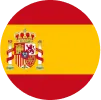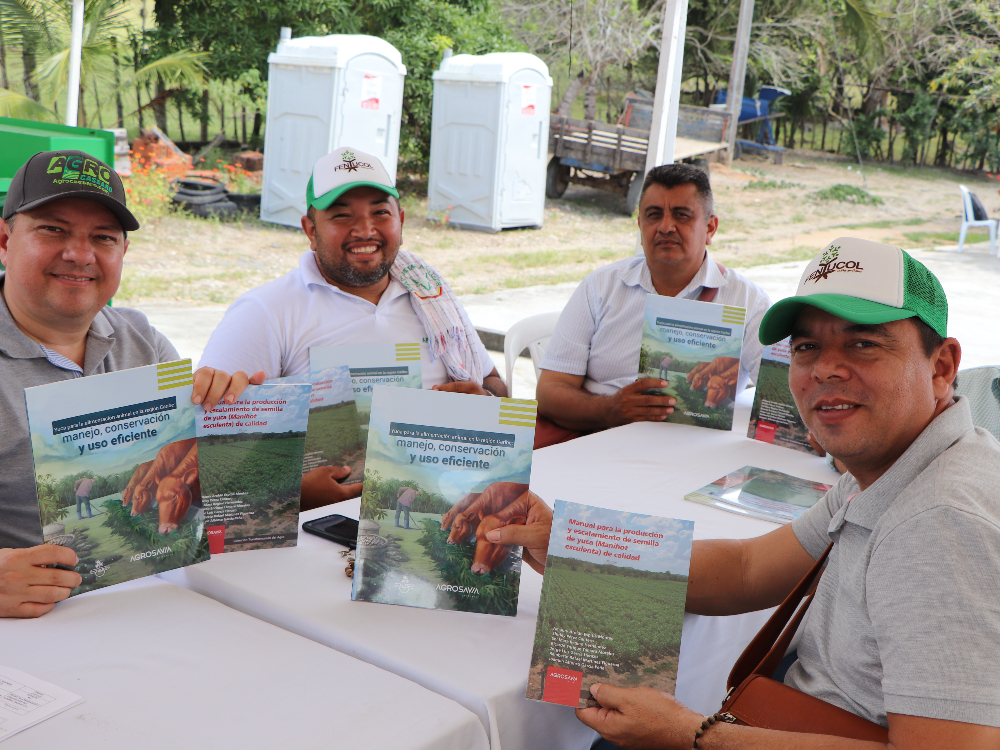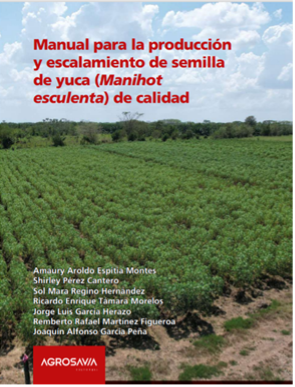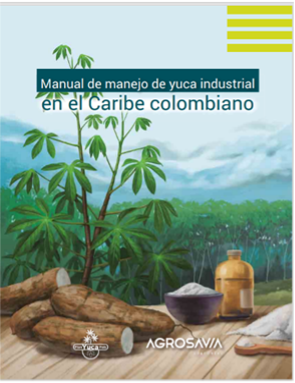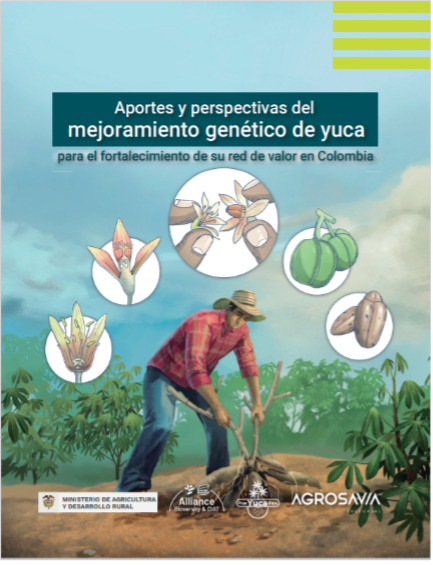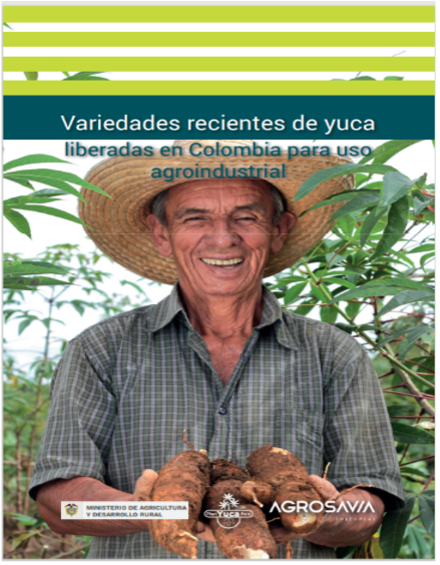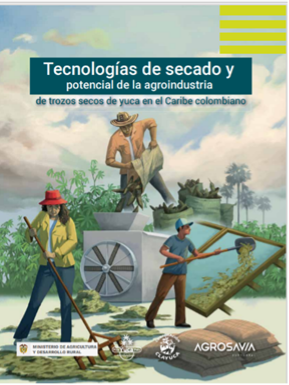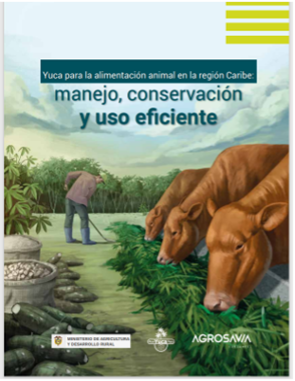- Within the framework of Plan Yuca País, an effort made by the technical team allowed the elaboration of three manuals on crop management, the use of cassava in animal feed, and added value through the drying of cassava pieces.
- The knowledge associated with obtaining improved cassava varieties is compiled in a book that describes the process, objectives, and future perspectives of genetic breeding.
Montería, Córdoba. May 8, 2023. Cassava is a high national importance crop, reflected in the extended cultivation areas and especially in the cultural base of consumption in the Colombian diet. Industrial cassava, the raw material for various products based on native and fermented starch, is also part of an extensive area reaching more than five thousand hectares. Likewise, the pieces of dried cassava are currently being produced and used in balanced animal feed. This summary shows the complexity and high dynamics of the cassava value chain in Colombia.
The Ministry of Agriculture and Rural Development, through Plan 'YUCA PAÍS,' promoted the productive industrial cassava subsector by including technologies and processes at a commercial level that allowed the consolidation of agribusiness, technological appropriation, and social benefit of communities. The execution of Plan Yuca País in phase I covered the territory of the departments of Córdoba, Sucre, and Bolívar.
Among all the results delivered by this project, the effort made by AGROSAVIA's technical team and its allies in preparing technical documents published and disseminated from AGROSAVIA's web portal is highlighted. Ph.D. Researcher Elvia Amparo Rosero Alpalá from the Turipaná Research Center, leader of Plan Yuca País, said, "A valuable team of researchers and professionals contributed to elaborating manuals that include all the technical knowledge regarding crop management, value addition strategies, the use of cassava, and the genetic breeding process." All the knowledge found in the manuals and published materials is being disseminated virtually.
The manual on industrial cassava crop management in the Caribbean includes the main technical recommendations, from seed selection and timely management tasks to the appropriate harvest time. Likewise, "the manual on cassava use in animal feed represents an important tool for producers and technical assistants in the Caribbean region since it addresses issues related to crop management, as well as strategies for its conservation and use in animal feed" said Emiro Suarez, M.Sc. Researcher at the El Carmen de Bolívar Headquarters and author of the manual.
On the other hand, the manual on drying technologies carried out in collaboration with CLAYUCA seeks to bring knowledge and available and improved technologies to strengthen the cassava crop's drying processes to the Colombian Caribbean region. This ally's trajectory in processing processes and value addition in cassava has allowed the integration not only from a technical knowledge perspective but also in the general strategy to implement technological and operational improvements in the current drying processes of cassava pieces to be used as raw material in animal feed.
Finally, the book on the contributions and perspectives of cassava genetic breeding sought to gather knowledge of the national breeding program established between AGROSAVIA and CIAT. This book details the methodology for obtaining new varieties and a technical sheet of all varieties registered before ICA throughout the national territory. The records of the varieties that originated as input for agro-industrial processing are also found in the book of cassava varieties. Rosero Alpalá mentioned, "The effort of the technical team and the good cohesion with national and international allies that allowed the elaboration of these valuable technical documents have been decisive. These documents seek to become a viable alternative for the appropriation of knowledge by organizations, producers, and other actors in the cassava value chain in Colombia."
Below, we share our publications and their access links:
- More information here:
- Liseth Cárdenas
- Communications, Identity and Corporate Relations Professional
- Research Center Turipaná
- Communications, Identity and Corporate Relations Advisory Office
- ljcardenas@agrosavia.co
- AGROSAVIA

